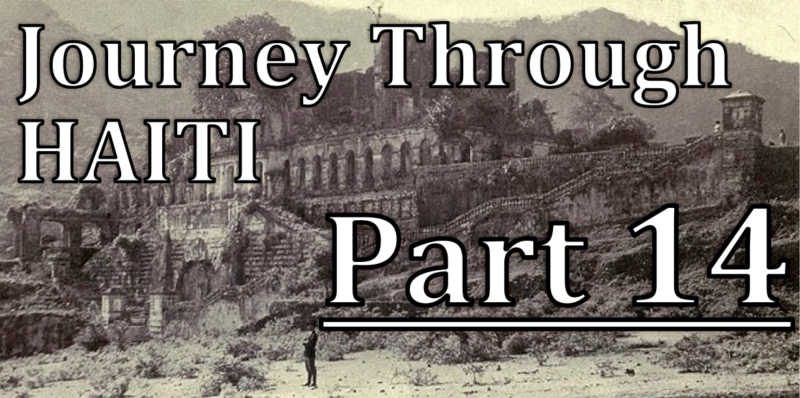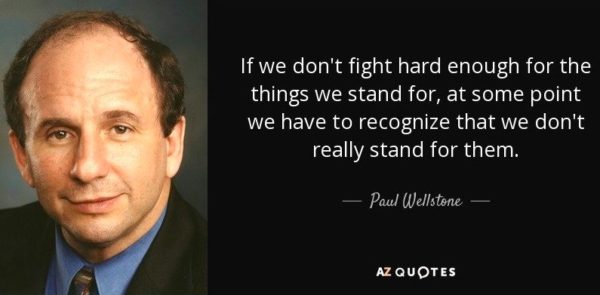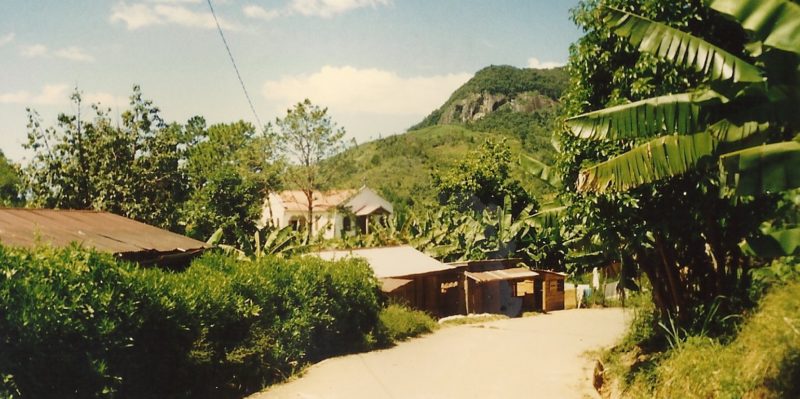“Faster, faster!” I yelled to the motorcycle driver. “Don’t stop for that guy. Just go!” We slipped between the partially closed gate and past the guard without stopping. Can you get in trouble for breaking into a country you “officially” never left?
With Lake Azuei on our right and a scrubby mountain on our left, we raced back into Haiti along the gravel road, swerving to avoid the washed out culverts. Finally we reached the little Haitian building, standing by itself on a desolate section of road. Here is where I could get my passport stamped. Inside, a line people were waiting in front of the only open window. This could take a while and I’m now wondering whether I should have left all my belongings back on the bus in the Dominican Republic.
The motorcycle driver pulled me over to another customer window that wasn’t being used and said something in Creole to one of the customs agents who was just standing around. The agent looked over my passport then asked about the $20 exit tax, but I showed him my bus ticket receipt that showed the bus company had already collected $20 for the exit fee. He then walked my passport over to the open window and gave it a stamp that read “Republique D’Haiti, Sortie.”
So back on the motorcycle we go. Back through the partially closed gate and through a parking lot. Then, What’s this?! The motorcycle driver is turning around and heading back to some guys hanging out by one of the semi trailers. “Don’t turn around,” I say. These guys aren’t going to bother coming after us. Besides, we’ll be in the Dominican Republic before they even can even stand up.
“I heard them calling for me,” the motorcycle driver replied as he turned back. One of the men stands up and asks to see my passport. The motorcycle driver indicates that I should give it to him. The man pages through it then exclaims, “There is a $10 exit fee.” Realizing that these guys are just out for a bribe, I grab my passport out of his hand and tell the motorcycle driver to go. And that’s what he does, until we reach the log jam at the entry gate. The rows of trucks are almost too close together for the motorcycle to fit through but a custom agent inspecting a truck steps aside to let us through and we finally make it back into the Dominions Republic and I quickly get my Dominican Republic entrance stamp.
The bus attendant informs me my bag is still in the luggage compartment and so I nudge my way past a few people who are asking for various fees and climb aboard and take my place at seat 17A and away we go. I’m not sure, but I think everybody else had to present their luggage to a customs agent while I was of on my motorcycle escapade. So not only did I enter Haiti without my bag going through customs, but now it happened again here.
Its strange thinking about leaving Haiti behind. This bizarre fantasy world is now somewhere else. It’s the reality I’ve been living in for several weeks and as the miles grow between me and this other world, that other world somehow become less real. It’s like a vivid memory of an intense dream that slowly fades, where hints of your old previous reality slowly emerge and begin to take the place of those trippy Haitian experiences. And because that Haitian world has no common elements with the outside world, there is nothing to anchor the feeling of being there in your memory. Maybe there will be flash backs.
I hadn’t even realized how deep I had gone into this Haitian reality. That Haitian reality hit me hard on the day I first landed in Haiti. It took me a while to catch my balance as I was never quite sure how to process everything. For several days straight I was bombarded with a shocking new revelations around each corner. Eventually, and I can’t say when, it became all kind of normal to me. I began to expect everything that entered my day; from the steamrollers driving down the highway, absolutely no traffic rules except those that mirror nature where big machinery wins on the open road and little nimble motorcycles win in the congested areas, homes made of tarps, mountains of garbage, people trying to scrape an existence by selling small bags of water for two cents at a time, an infrastructure out of an apocalypse movie, city streets that challenged SUVs, a government that can’t supply electricity for more than a couple of hours a day or provide clean drinking water but can help build a five star hotel. This was normal to me and I knew factually that the outside world was different, but my connection and association with that outside world had been diminished over time.
Is not a shock going back the other way because as I enter the Dominican Republic, I’m entering something that more closely resembles things I’ve been familiar with my entire life.
As the bus traveled along, I wrote down everything that stood out to me, that reminded me that we had crossed over into a new world. These are things I would not have seen had I not been in Haiti long enough for these things to seem unusual. Here is what I wrote.
Little towns out in the middle of nowhere have nice curbs and sidewalks that aren’t crumbling. The highway has a white line painted along the edge. There are no garbage piles. Houses have fresh paint. There are decorative wooden houses with architectural style . The security bars on the windows have fancy decorative elements. There are not crowds of people at each speed bump trying to sell things. Where are all the people? The traffic is very light. There are cross walk signs and painted cross-walks. The curbs are painted yellow in no-parking areas. Even people in modest homes have some landscaping. The sides of buildings and walls don’t have graffiti type election slogans spray painted on the sides or have street names spay painted on them. The only people I see on the streets are kids in school uniforms. There are flowers. Kids are riding bikes. Lots of people on motorized scooters (not just motorcycles. This means they own them for personal transportation, not as a taxi). The road has guard rails. There are road signs giving directions to cities. Again, there is no garbage. No broken-down vehicles in the middle of the road. Public garbage cans. Cars are parked properly and not on the sidewalk. Large storefront windows. One store selling dozens of bikes with training wheels. No razor wire around the car dealerships. No razor wire anywhere. People stay in their lanes and wait for the light to turn green. The traffic lights work.
I’ve heard people talk about their vacations to the Dominican Republic and they almost always talk about how poor the country is, how it’s not up to American standards. I can’t wait to hear how my wife and 10 year old son describe what they see when they arrive here. I will try not to always be responding to them by saying “Oh, you think that’s bad, it’s nothing compared to Haiti.” I don’t want to diminish the validity of the experiences they will be having.
So what is my take-away from this trip? There are so many different angles to look at this from. I love thinking about sustainability because it is so complex. A common challenge to mapping a sustainable path for any one country is trying to find the right balance of priorities between, the economy, the environment and social issues. Each of these topics has numerous components. And every country has its own unique set of existing conditions, whether it be historical, demographic, geographical, political, cultural, or you name it. They all impact how a county will choose to meet its current development needs without compromising the ability of future generations to meet their needs.
I will be spending a lot of time trying to synthesize all of that into some sort of logical framework. But that will be a long process. But here is the real interesting thing I’ve learned, and it’s something I haven’t heard discussed enough throughout the overall sustainable development field. And it’s something about Haiti I didn’t realize until after I left Haiti. It has to do with the way Haitians experiences events in this isolated bubble they live in.
If all you know your entire life is what you’ve experienced inside Haiti, then to you, Haiti is not just someplace seems normal. It is also incomprehensible that anything else can exist. It is impossible to really explain the outside world to them; in much the same way as the time I spent in Africa, living in the Caribbean and reading about Haiti, couldn’t really help me understand what it would be like being inside Haiti, in the middle of it all.
The separation of my identity as an outside observer and that of being integrated into a Haitian world had disintegrated over the course of a month. My experience was pure, clear, and very powerful. It flowed through me. I was infected by its germs, I saw numerous mother’s holding their dying kids, I had to figure out how to function completely on my own without knowing the language in order to survive, I felt the isolation from electricity and the inability to communicate with my family, I felt the psychological effects of being penned up with it all (thank God four Jamie Schumacher’s motorcycle). I lived the experience in the day, the sounds in the streets were with me as I drifted asleep and it stayed with me at night as I dreamed. Yet with every single challenge I faced, (and they kept coming relentlessly), I was always aware that I had it so much better than basically everybody else who was in this world with me.
In the back of my mind, when frustration would start to surface, I knew I could always throw in the flag, break out the cash and leave. I knew that this ride had an end and that I was in control of ending it. But all those people I left behind, they may say they want their government to make changes, they may say they want to come to the United States, but they don’t really understand what that means. It means passing through a curtain and entering something completely foreign to them.
And so because it’s not just pockets of Haiti that are undeveloped, how can the Haitians even know that there is an entirely different way to see the world. Right now, when they think about change, it is a change, but it doesn’t take them to a new world. The western world comes with proposed solutions, but the potential of our suggestions are being viewed through a completely and totally different perception of reality. We can ask them, “Don’t you want your country to be developed, have good healthcare and a promising future?” They will say “of course,” but at the same time they might also be thinking, “what’s that?” That is why my first blog entry was called ‘A Hundred Year Haul’.
So this is the end of my “Journey Through Haiti” blog series. I hope you enjoyed it and learned some new things along the way. I’ve been in the Dominican Republic for a little while now. I have been slow getting these last few blogs out. Today I had several meetings at the Ministry of Economics, Planning and Development. I met with the Director General of Economic and Social Development and others. Tomorrow I get to meet my wife and son at the Santiago airport. I can’t wait! Thanks for coming along on this journey with me and take care.




